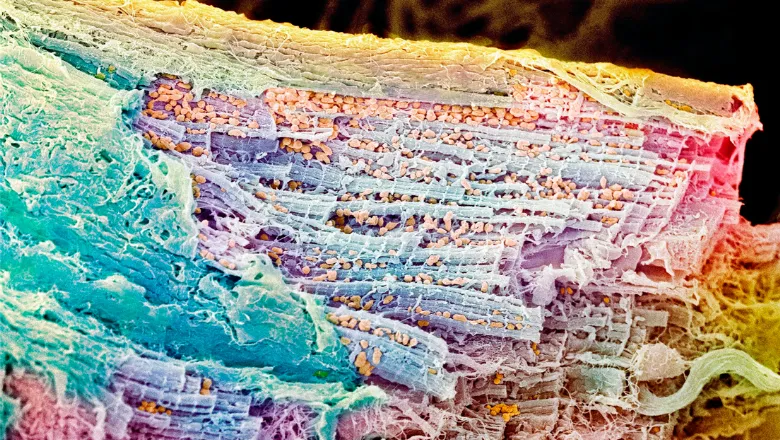As we demonstrated that accumulating proteoglycans impairs the ability of the heart to pump appropriately, the effect in reducing proteoglycan content may constitute a previously unrecognised benefit of beta-blockers in heart failure patients.
Dr Javier Barallobre-Barreiro, School of Cardiovascular Medicine & Sciences
01 December 2021
Beta-blockers reduce heart proteoglycan content potentially providing newly discovered health benefits
Researchers discover that beta-blockers can prevent build-up of proteoglycans, a group of proteins that accumulate in the heart of patients with heart failure.

Beta-blockers are a group of drugs that slow down our heart rate. They work by blocking the action of stress hormones – adrenaline, noradrenaline – stopping them from binding to receptors on heart cells.
Because they reduce the rate at which the heart contracts, beta-blockers are a common prescription for treating numerous heart conditions, such as angina, high blood pressure and heart failure.
A new study led by Dr Javier Barallobre-Barreiro, BHF Intermediate Fellow at King’s, and Prof Manuel Mayr, BHF Chair at King’s, has discovered another way that beta-blockers may benefit patients with heart failure. Specifically, they help to reduce the levels of a type of proteoglycans (a hybrid molecule made of protein and carbohydrates) called CSPGs.
CSPGs are found in the heart tissue and are important for the function of the extracellular matrix (ECM). The ECM is the heart’s structural scaffold, allowing neighbouring heart cells to connect and communicate with each other.
However, problems arise if there are too many CSPGs within the heart, as they change the structure of the ECM. Analyses of heart tissue from patients with heart failure found a significant deposit of CSPGs within their samples.
When the authors increased CSPGs in mouse models, they found that it reduced the efficiency of the heart in pumping blood to the body. This suggests that an overabundance of CSPGs is detrimental for the heart.
Following these results, collaborators Professor Béla Merkely from Semmelweis University (Budapest) and Dr Nieves Doménech (A Coruña University) provided samples from end-stage heart failure patients undergoing cardiac transplantation. Using samples from 86 patients, they performed the largest proteomics analysis on human heart failure to date.
Patients who used beta-blockers had a lower heart rate, as expected. But they were also found to have less CSPGs in the ECM. Follow-up experiments on beta-blockers demonstrated that they block hormone receptors in fibroblasts (the cells that produce the ECM), reducing CSPG production.
Further research is needed to understand how changes in CSPG deposition impair heart function, and how such changes can help scientists find new therapeutic targets that decrease the risk of heart failure and improve the quality of life of patients with heart failure.
The full paper can be read here.
